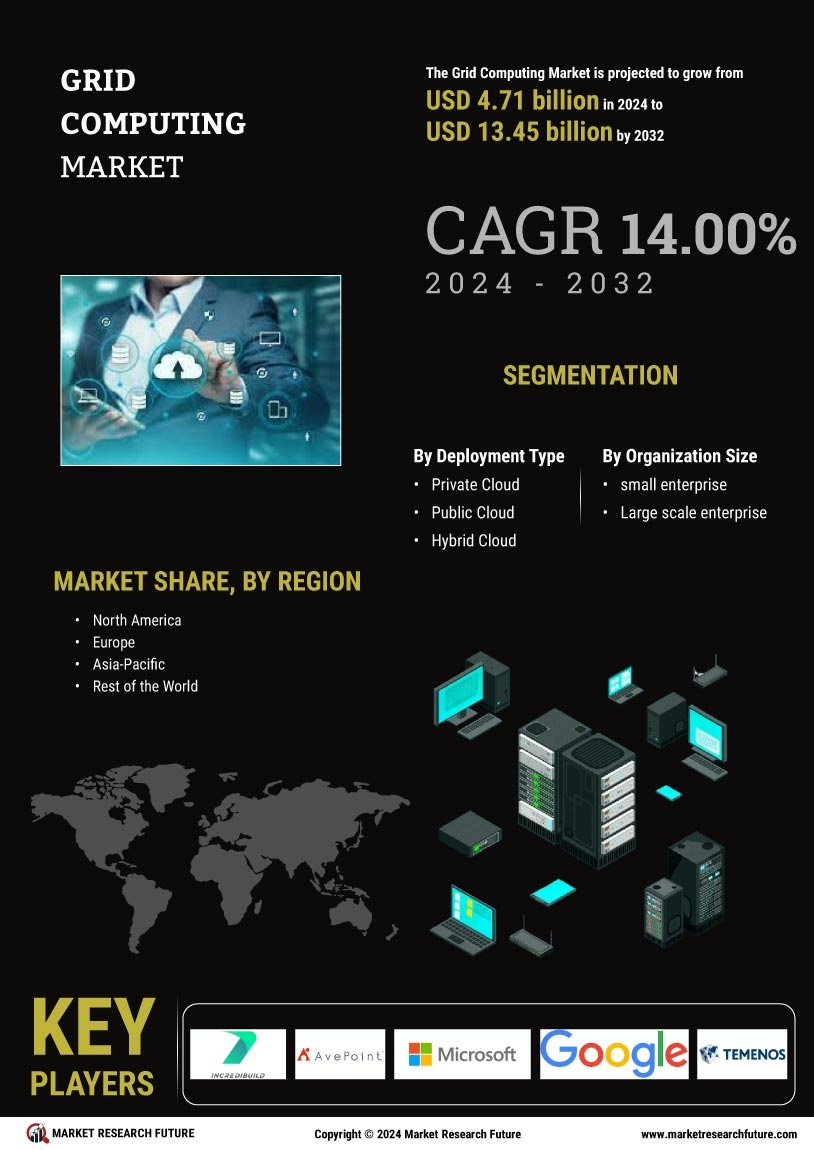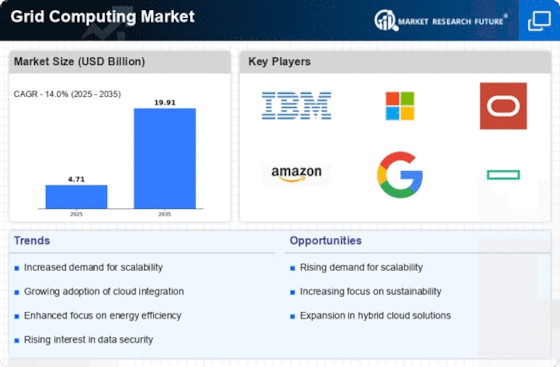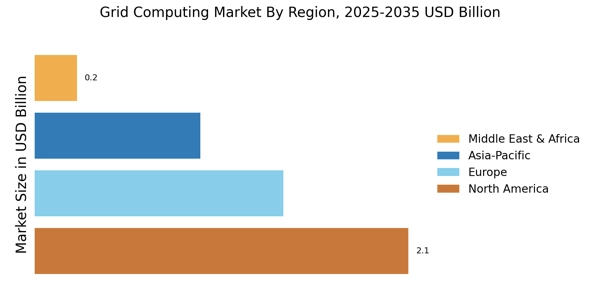Advancements in Technology
Technological advancements play a pivotal role in shaping the Grid Computing Market. Innovations in hardware and software are enabling more efficient grid computing solutions, which in turn attract a broader range of users. For instance, the development of high-speed networks and improved virtualization technologies enhances the capabilities of grid computing systems. Furthermore, the integration of artificial intelligence and machine learning into grid computing frameworks is expected to drive further growth. As these technologies evolve, they may lead to more sophisticated applications and services, thereby expanding the Grid Computing Market and attracting new sectors.
Growing Need for Scalability
Scalability is becoming an essential requirement for organizations, significantly influencing the Grid Computing Market. As businesses grow, their computing needs evolve, necessitating flexible solutions that can adapt to changing demands. Grid computing offers a scalable architecture that allows organizations to increase or decrease resources as needed without significant disruptions. This adaptability is particularly appealing to enterprises that experience fluctuating workloads. The ability to scale efficiently may lead to increased investments in grid computing technologies, as organizations seek to future-proof their operations. Consequently, the emphasis on scalability is likely to drive the growth of the Grid Computing Market.
Rising Demand for Data Processing
The Grid Computing Market is experiencing a notable surge in demand for efficient data processing solutions. As organizations increasingly rely on data-driven decision-making, the need for robust computing power becomes paramount. This trend is underscored by the fact that the volume of data generated globally is projected to reach 175 zettabytes by 2025. Consequently, grid computing offers a viable solution by enabling the distribution of processing tasks across multiple systems, thereby enhancing performance and reducing latency. Organizations are likely to invest in grid computing technologies to harness the full potential of their data, which may lead to a significant expansion of the Grid Computing Market.
Cost Efficiency and Resource Optimization
Cost efficiency remains a critical driver for the Grid Computing Market. Organizations are increasingly seeking ways to optimize their IT expenditures while maximizing resource utilization. Grid computing facilitates this by allowing multiple users to share resources, thus reducing the need for extensive hardware investments. According to recent estimates, companies can achieve up to 30% savings in operational costs by implementing grid computing solutions. This financial incentive is likely to propel the adoption of grid computing technologies, as businesses aim to streamline operations and enhance productivity. The potential for cost savings positions the Grid Computing Market favorably in the competitive landscape.
Increased Collaboration Across Industries
The Grid Computing Market is witnessing an increase in collaboration across various sectors, which is driving its growth. Industries such as healthcare, finance, and research are leveraging grid computing to facilitate collaborative projects that require substantial computational resources. For example, in the healthcare sector, grid computing is utilized for large-scale genomic research, enabling researchers to analyze vast datasets efficiently. This collaborative approach not only enhances innovation but also accelerates project timelines. As more industries recognize the benefits of shared computing resources, the Grid Computing Market is likely to expand, fostering a culture of collaboration and resource sharing.


















